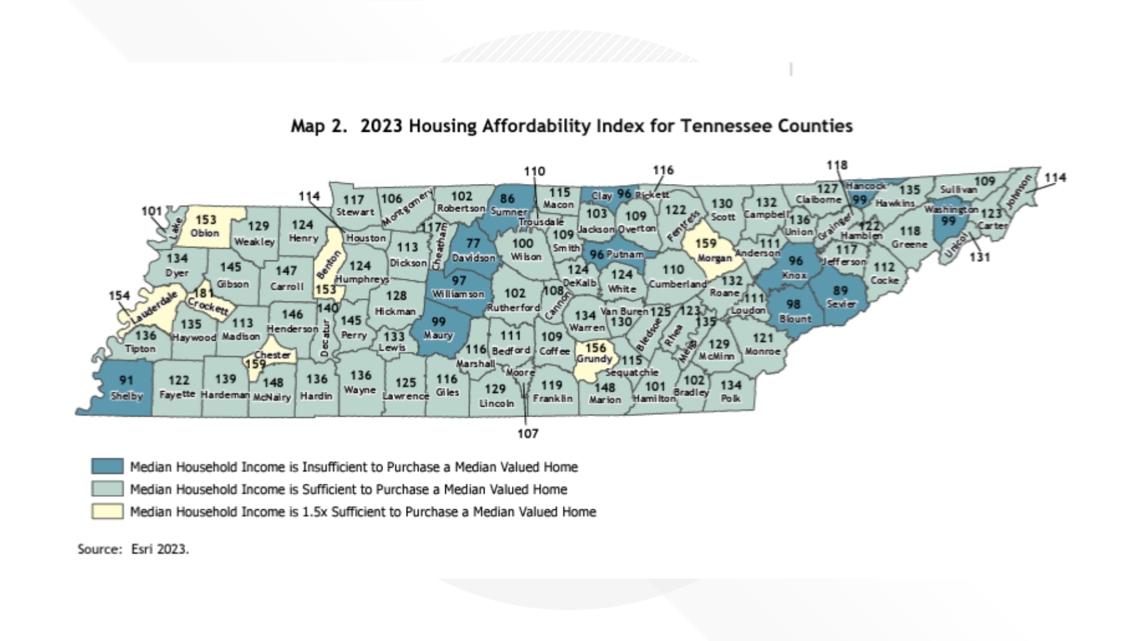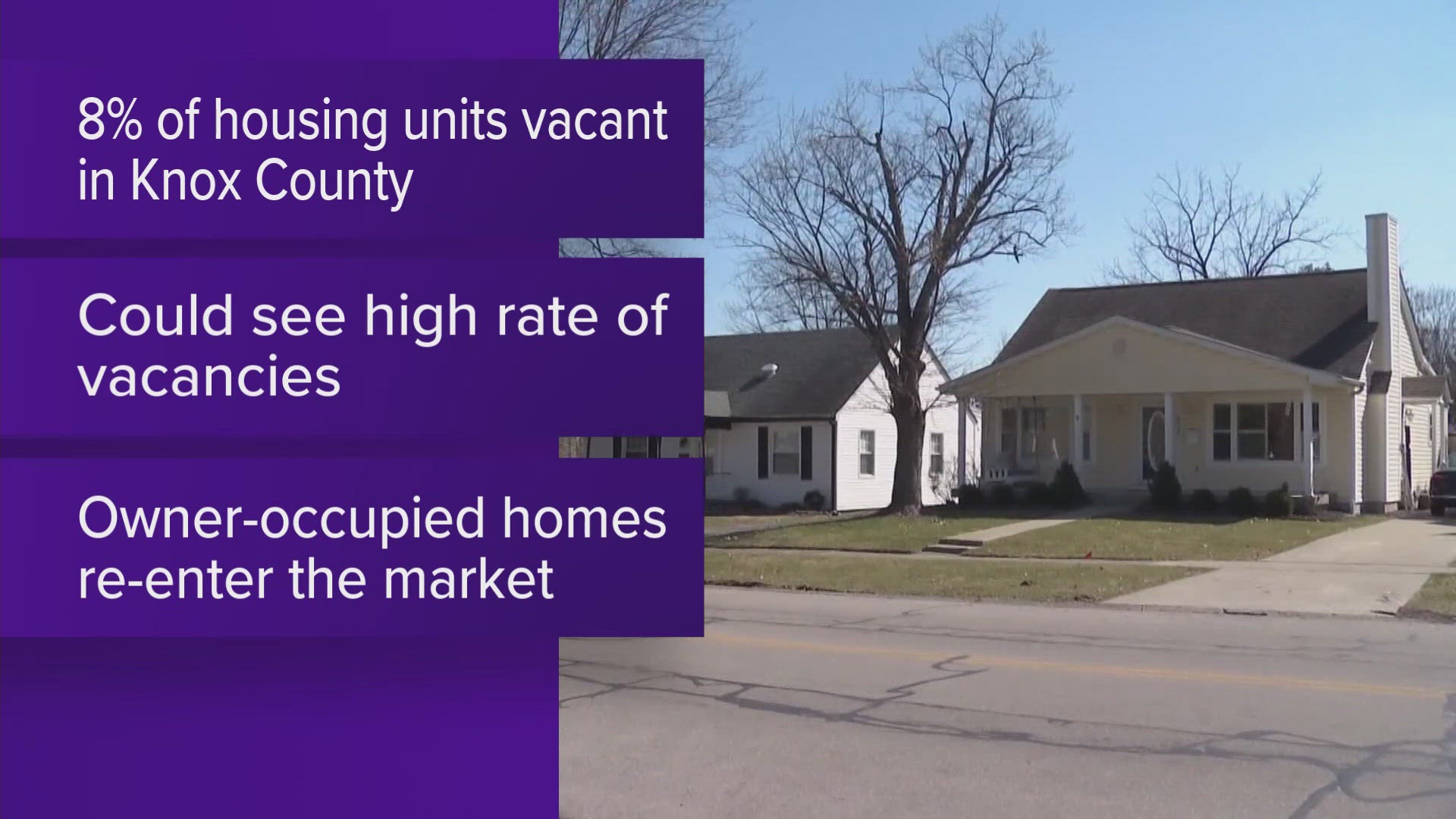NASHVILLE, Tenn. — In late May, a state commission tasked with studying the factors behind housing affordability released its findings. In its report, the commission recommended the state start working with local governments to change zoning rules and open up areas where developers could build more homes.
The Tennessee Advisory Commission on Intergovernmental Relations released its report on May 29 and said state lawmakers should work with local governments to encourage developers to build more homes. The report said it found local governments already have land use tools they can use to encourage housing production.
It recommended the state "offer an incentive for local governments who adopt zoning reforms to promote housing production by sharing some of the state's realty transfer tax or mortgage tax revenues." The incentives could help local governments balance developers' upfront costs associated with building homes, and make local governments more amenable to the idea of changes in their community, the commission's report said.
It also said the state could give some tax revenue money to local governments that allow mixed-use developments, reduce lot size requirements or allow some types of "missing middle housing" — incentivizing zoning changes in more counties.
The commission also recommended the state use tax revenues to fund either its existing housing trust fund or a new fund that the Tennessee Housing Development Authority could use to offer low-interest loans for affordable housing developments.
At the same time, the report recommended state and local governments work to mitigate the impact zoning changes would have on existing residents. Specifically, it said property value assessments should be based on homes' zoning before any changes are made to the zoning code.
The commission also recommended the state use "land banks" to find uses for vacant and abandoned lands. It said few cities and counties in the state can establish land banks. Typically, these kinds of entities group swaths of property under a single organization. They effectively mark a single owner over large amounts of land that governments and developers can directly work with.
"Land bank corporations can be used as a legal and financial mechanism to return vacant, abandoned, and tax-foreclosed properties to productive use through rehabilitation, demolition, or redevelopment," the report said. "One such productive use, of course, is housing, and land banks in some other states have a special focus on converting blighted property into affordable housing."
The commission also recommended local governments be allowed to create websites that have links to the state's website where it advertises surplus real estate. Through these websites, the commission said governments could more easily reach buyers for real estate, including tax-delinquent property.
The Center for Community Progress said land banks are usually government entities or nonprofits, and are usually funded by either selling properties or by grants.


The commission's report said housing affordability is hinged on increasing the supply of homes across the state.
"One national housing research group, Up For Growth, estimated Tennessee needed 22,000 additional housing units as of 2019. The next year, though, that number had more than doubled to 56,000," the report said.
It also compared household income to home prices to determine the affordability of counties across the state. It said the median price of a home in Tennessee in 2022 was around five times the state's median income. It also found that there was only one county in East Tennessee where the median income is at least 1.5 times sufficient to buy a typical home — Morgan County.
Five counties did not have a median income sufficient enough to buy a home, as listed below.
- Knox County
- Blount County
- Sevier County
- Hancock County
- Washington County

